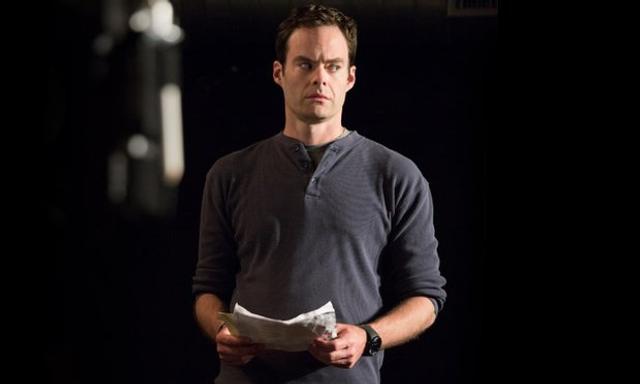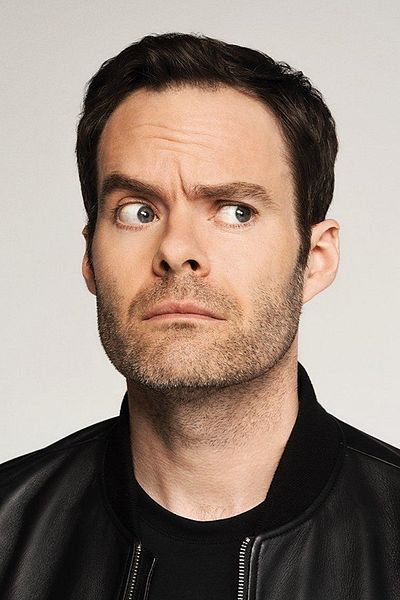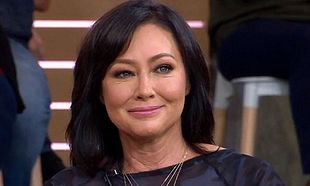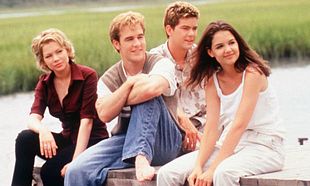So many talented people have graced the halls of Studio 8H in 30 Rock, had maybe a few seasons on long-running flagship NBC series 'Saturday Night Live', then pretty much disappeared from broad public view, destined to be defined by a handful of sketches with more talented scene partners.
Sure, there have been movie stars (Eddie Murphy, Will Ferrell, Kristen Wiig) and even talk show hosts (Jimmy Fallon, Seth Meyers), but such success is rare and there are countless other names who now make a career in smaller roles, podcasting or not at all. Sometimes it's a lack of star quality, sometimes them's the breaks.
Bill Hader started out as a production assistant in Hollywood - the lowest of the low in the gene pool. Worked as a writer on 'South Park' and then ended up on 'SNL' bigwig Lorne Michaels radar thanks to a recommendation from 'Will & Grace' star, Megan Mullally. Hader had never even tried impressions before, but ultimately became a star player on a show that was, at the time, stacked with names that would prove to be prominent in American popular culture - Dick in a Box, anyone?
When Hader announced he was working on a pilot for a hitman series for HBO, it was tough to know what to expect - did the world really need another show or movie about likable assassin? Then 'Barry' premiered and those that found it got it right away; this wasn't a run of the mill series about a guy who just kills bad people, this was something else entirely. From the early episodes, it's clear that Hader and creative partner, Alec Berg are tackling far bigger, more human issues. The fact that they managed to also make it sporadically hilarious is probably more expected, but no less impressive given the constant balance they strike with the tone.
While we're going to assume you haven't seen Barry yet and thus avoid spoilers, it's still fair to say that the show gets progressively darker as it moves along. The initial hook of a killer, seemingly with a conscience, who wants to be an actor is relatively low hanging fruit when it comes to laughs - most of which come via his acting teacher (an Emmy winning Henry Winkler) his fellow, desperate classmates or Chechen gangster Hank (a truly superb Anthony Carrigan). The kicker is that even those overtly neurotic scenes feel authentic, coming via Hader's own experiences starting out in Hollywood. But neurotic, self-obsessed performers are nothing new in the entertainment business; it's when the darkness of Barry begins to creep in that you really begin to understand that this show is something special.
To be surprised by a show now really takes a lot of investment, but to get that investment you need to obviously have the creative skill set to engage the audience. You're rooting for Barry. Sure, he's done some shit that seems to be troubling him, and we know we're just scratching the surface of that darkness; but he doesn't WANT to do these horrible things, he has no choice, right? That morality question is perpetually at the centre of 'Barry', almost like Hader and Berg are seeing how long we'll stay on board with this guy, how much longer we'll root for him. And while a charismatic anti-hero is nothing new for HBO (Omar Little, Tony Soprano) it's difficult to recall one written or played with such emotional dexterity.
There's an episode of 'Barry' halfway through the second season - 'Ronny/Lily' - that is a genuinely insane half hour of television. It seemingly doesn't make any sense, contextually to the story arc, to move in the direction they do. Yet, by the end, it's clear that this was all part of a plan and it's something truly special. Mixing elements of horror, comedy, action and then organically bringing the main story thread in by the end... the whole series is worth watching just to that point to underline how good it is.
The director of that episode? Bill Hader; having the type of eclectic career post-'SNL' that will make the iconic sketch series more of a footnote than a defining moment.



















































































